The system is processing. Please wait a moment!
- Home page PRODUCT Stage Sound Equipment Amplier - Genuine Audio Amplifier
Amplier - Genuine Audio Amplifier
Sorted by:
Mục lục nội dung
- Amply là gì?
- Cấu tạo và nguyên lý hoạt động của amply
- Chức năng của amply trong dàn âm thanh
- Phân loại amply
- Các yếu tố ảnh hưởng đến chất lượng của amply
- Hướng dẫn chọn amplier phù hợp
- Top 5 hãng sản xuất amply tốt nhất
- Amply Marantz
- Amply Denon
- Amply Yamaha
- Amply Onkyo
- Amply Cambridge Audio
- Địa chỉ mua amply chính hãng giá tốt
1. Amply là gì?
Ampli (Amplifier) đóng vai trò quan trọng trong hệ thống loa khi nó được sử dụng để khuếch đại âm thanh, thường được đặt giữa nguồn âm thanh và loa. Chức năng chính của ampli là tiếp nhận tín hiệu đầu vào từ nguồn nhạc, tăng cường tín hiệu âm thanh và phát ra tín hiệu với độ lớn tăng nhanh chóng, từ đó truyền đến thiết bị phát, tức là loa.
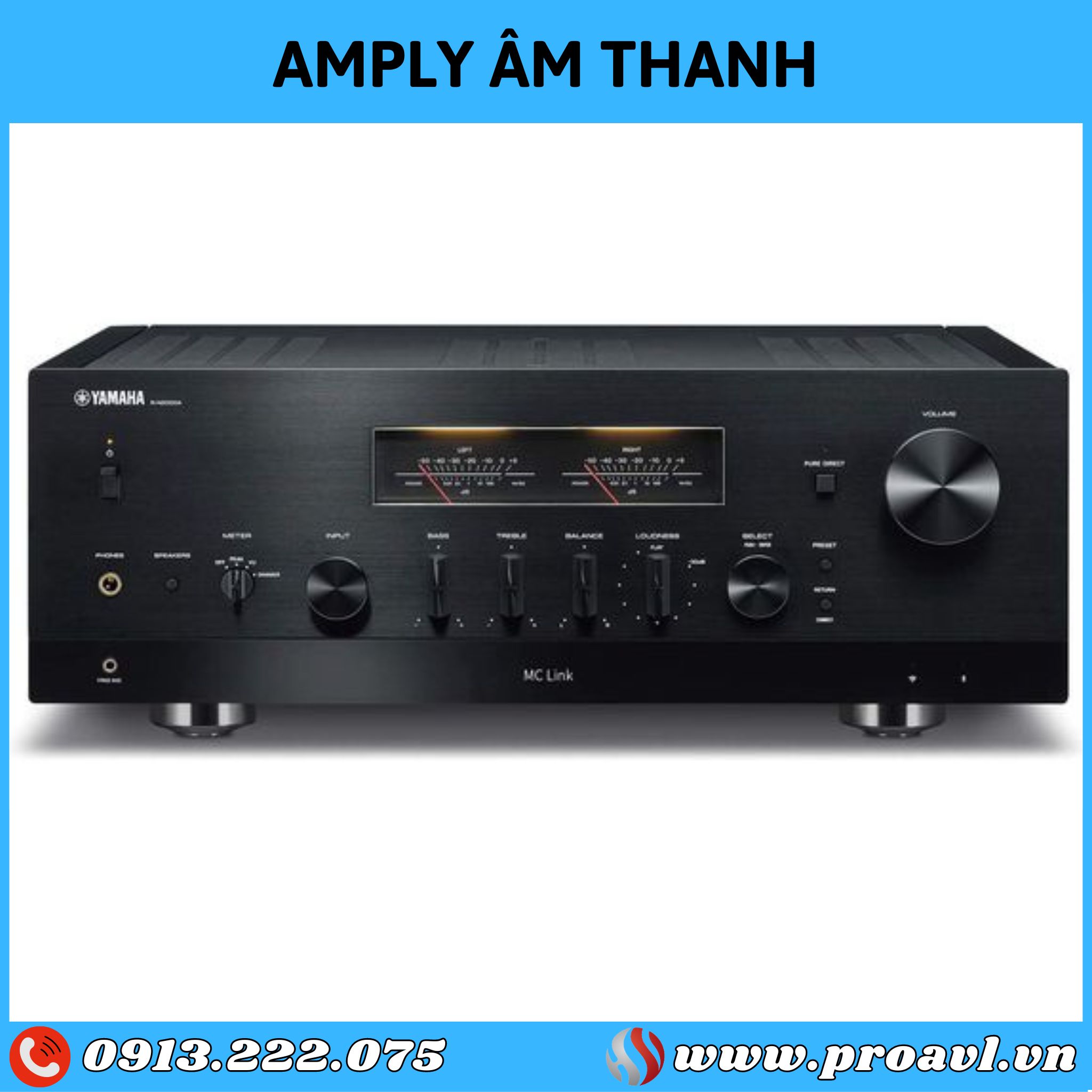
2. Cấu tạo và nguyên lý hoạt động của amply
2.1. Cấu tạo cơ bản của một ampli âm thanh
Đầu vào (Input): Nơi tiếp nhận tín hiệu đầu vào từ nguồn âm thanh.
Mạch khuếch đại (Amplification Circuit): Bao gồm các thành phần điện tử như transistor hoặc ống Valve/tube để tăng cường amplitude của tín hiệu đầu vào.
Nguồn điện (Power Supply): Cung cấp nguồn năng lượng để hoạt động mạch khuếch đại.
Đầu ra (Output): Là nơi xuất ra tín hiệu đã được khuếch đại để đưa đến loa hoặc thiết bị khác.

2.2. Nguyên lý hoạt động cơ bản của ampli âm thanh
Thu nhận tín hiệu đầu vào: Ampli nhận tín hiệu âm thanh từ nguồn đầu vào, chẳng hạn như một thiết bị phát nhạc hoặc micro.
Khuếch đại tín hiệu: Mạch khuếch đại trong ampli tăng cường amplitude của tín hiệu đầu vào. Điều này thường được thực hiện bằng cách sử dụng các thành phần điện tử để điều khiển dòng điện hoặc điện áp theo cách có thể tăng cường độ lớn của tín hiệu.
Kiểm soát và Điều chỉnh: Một số ampli có các bộ điều chỉnh (tone control) để thay đổi các thông số âm thanh như bass, treble, và midrange. Các bộ điều chỉnh này giúp người nghe có thể tinh chỉnh âm thanh theo sở thích cá nhân.
Xuất tín hiệu khuếch đại: Tín hiệu đã được khuếch đại được đưa ra qua ngõ ra để điều chỉnh đến loa hoặc thiết bị khác, nơi âm thanh được tái tạo.
Nguồn điện: Một ampli cần một nguồn điện để cung cấp năng lượng cho mạch khuếch đại. Điều này có thể là nguồn điện cố định hoặc nguồn điện biến đổi.

XEM THÊM SẢN PHẨM DỊCH VỤ CỦA HSV ProAVL
3. Chức năng của amply trong dàn âm thanh
Amply đóng một vai trò quan trọng trong dàn âm thanh và có nhiều chức năng quan trọng để cải thiện và kiểm soát chất lượng âm thanh. Dưới đây là một số chức năng quan trọng của ampli trong một hệ thống âm thanh:
Khuếch đại Tín hiệu: Chức năng chính của ampli là tăng cường độ lớn của tín hiệu âm thanh từ nguồn đầu vào. Điều này giúp đảm bảo rằng tín hiệu có đủ sức mạnh để đưa đến loa và tạo ra âm thanh có chất lượng.
Kiểm Soát Tín Hiệu: Một số ampli có các bộ điều chỉnh (tone control) như bass, treble, và midrange, giúp người nghe điều chỉnh âm thanh theo sở thích cá nhân. Các chức năng này giúp tối ưu hóa âm thanh cho loại nhạc hoặc nhu cầu nghe cụ thể.
Chuyển Đổi Định Dạng Tín Hiệu: Một số ampli có khả năng chuyển đổi định dạng tín hiệu, chẳng hạn như chuyển đổi tín hiệu analog sang digital hoặc ngược lại. Điều này hữu ích khi kết nối với các thiết bị khác trong hệ thống.
Bảo Vệ Loa: Ampli thường có các tính năng bảo vệ như quá tải (overload protection) và bảo vệ nhiệt độ (thermal protection) để đảm bảo rằng loa và mạch khuếch đại không bị hỏng do quá tải hoặc quá nhiệt.
Xử lý Tín Hiệu Từ Nguồn Đầu Vào: Ngoài việc khuếch đại tín hiệu âm thanh, ampli cũng có thể có các tính năng xử lý tín hiệu như chống nhiễu, giảm tiếng ồn, hoặc các công nghệ tiên tiến khác để cải thiện chất lượng âm thanh.
Điều Chỉnh Độ Trễ (Delay): Trong một số hệ thống âm thanh, ampli có thể được sử dụng để điều chỉnh độ trễ của tín hiệu, giúp đảm bảo rằng âm thanh từ các loa khác nhau đến tai người nghe đồng bộ.
Phối Hợp Với Các Thiết Bị Khác: Ampli thường được thiết kế để phối hợp với các thiết bị khác trong hệ thống âm thanh như đầu phát, đầu giải mã, và loa để tạo ra một trải nghiệm âm thanh tổng thể tốt nhất.
4. Phân loại amply
Trên thị trường, amplier phổ biến các loại sau:
- Pre-ampli (Bộ tiền khuếch đại):
Đóng vai trò quan trọng trong hệ thống âm thanh bằng cách nhận tín hiệu từ nguồn âm thanh và khuếch đại chúng đến mức có thể được ampli/cục đẩy công suất tiếp nhận. Trong nhiều trường hợp, ampli phải xử lý tín hiệu từ nhiều nguồn khác nhau, nhưng các nguồn này có công suất không đồng đều, điều này làm nảy sinh nhu cầu sử dụng bộ tiền khuếch đại trong hệ thống âm thanh. Đáng chú ý, tín hiệu đầu ra của pre-amp thường rất yếu (chỉ vài trăm microwatt), do đó, hệ thống âm thanh đòi hỏi một ampli khác để hoạt động.
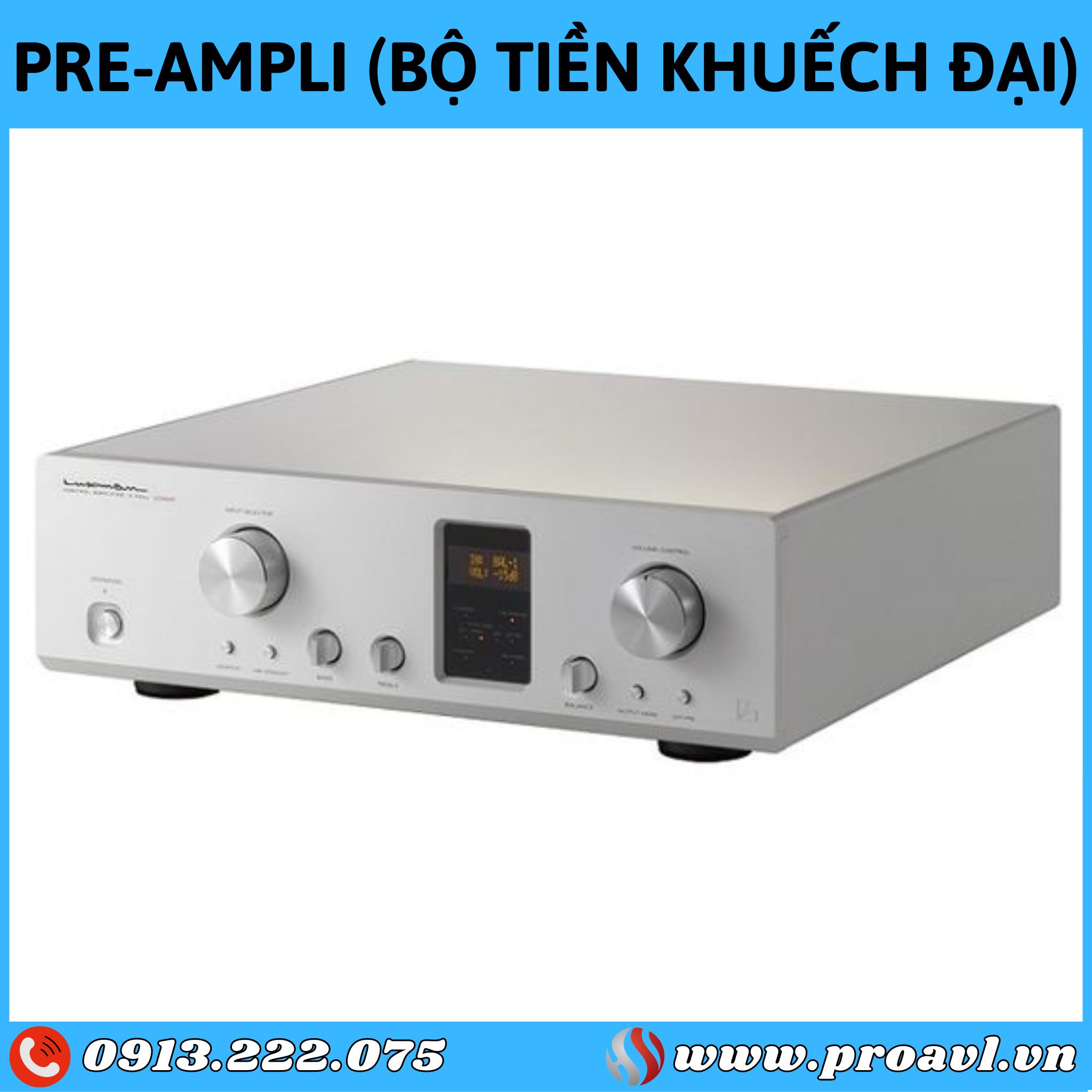
- Integrated Amplifier (Bộ khuếch đại tích hợp:
Là một giải pháp tiện ích hơn bao gồm cả pre-amp và power amplifier. Mặc dù phổ biến vì tính tiện lợi, nhưng các chuyên gia âm thanh chuyên nghiệp thường ưa chuộng ampli và pre-amp riêng biệt hơn do khả năng giảm nhiễu tín hiệu tốt hơn. Các bộ khuếch đại tích hợp có thể gặp hiện tượng nhiễu tín hiệu cao hơn so với các bộ amply riêng lẻ.
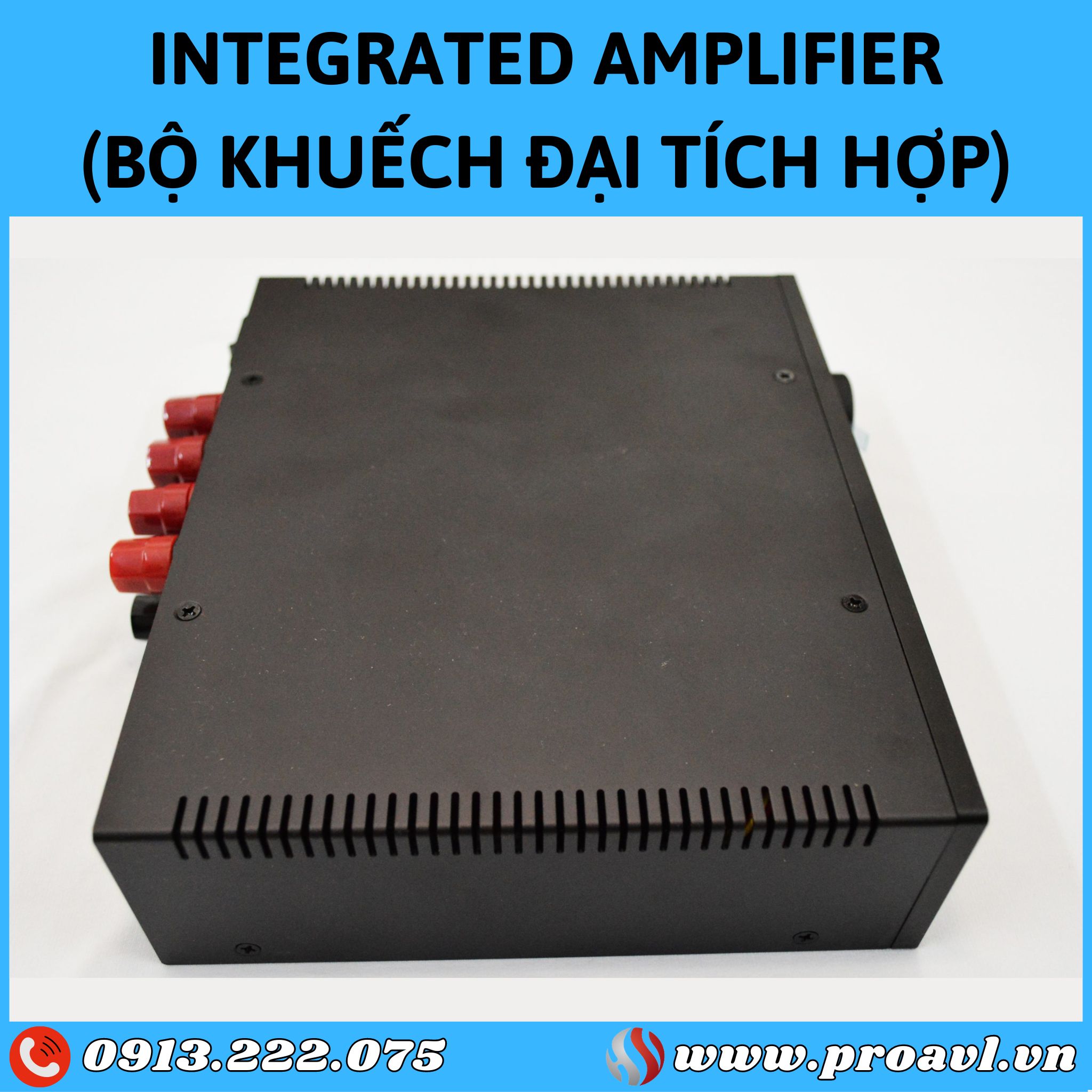
- Power Amplifier (Bộ khuếch đại công suất):
Nhận tín hiệu đầu vào từ pre-amp hoặc bất kỳ thiết bị nào khác và tạo ra mức công suất đủ để cung cấp cho loa. Công suất tạo ra phục vụ nhu cầu của loa, có thể là từ vài watt cho các thiết bị nhỏ đến hàng trăm watt cho các hệ thống âm thanh mạnh mẽ.

- Receiver Amplier (Bộ thu):
Thực chất là một ampli tích hợp với khả năng thu sóng radio. Thuật ngữ "receiver" xuất phát từ khả năng nhận tín hiệu radio của chúng. Về sau, "receiver" cũng được sử dụng để chỉ các thiết bị có nhiều tính năng kết nối khác nhau. Bởi vì receiver bao gồm bộ khuếch đại tích hợp, chúng cũng có những tính năng tương tự.
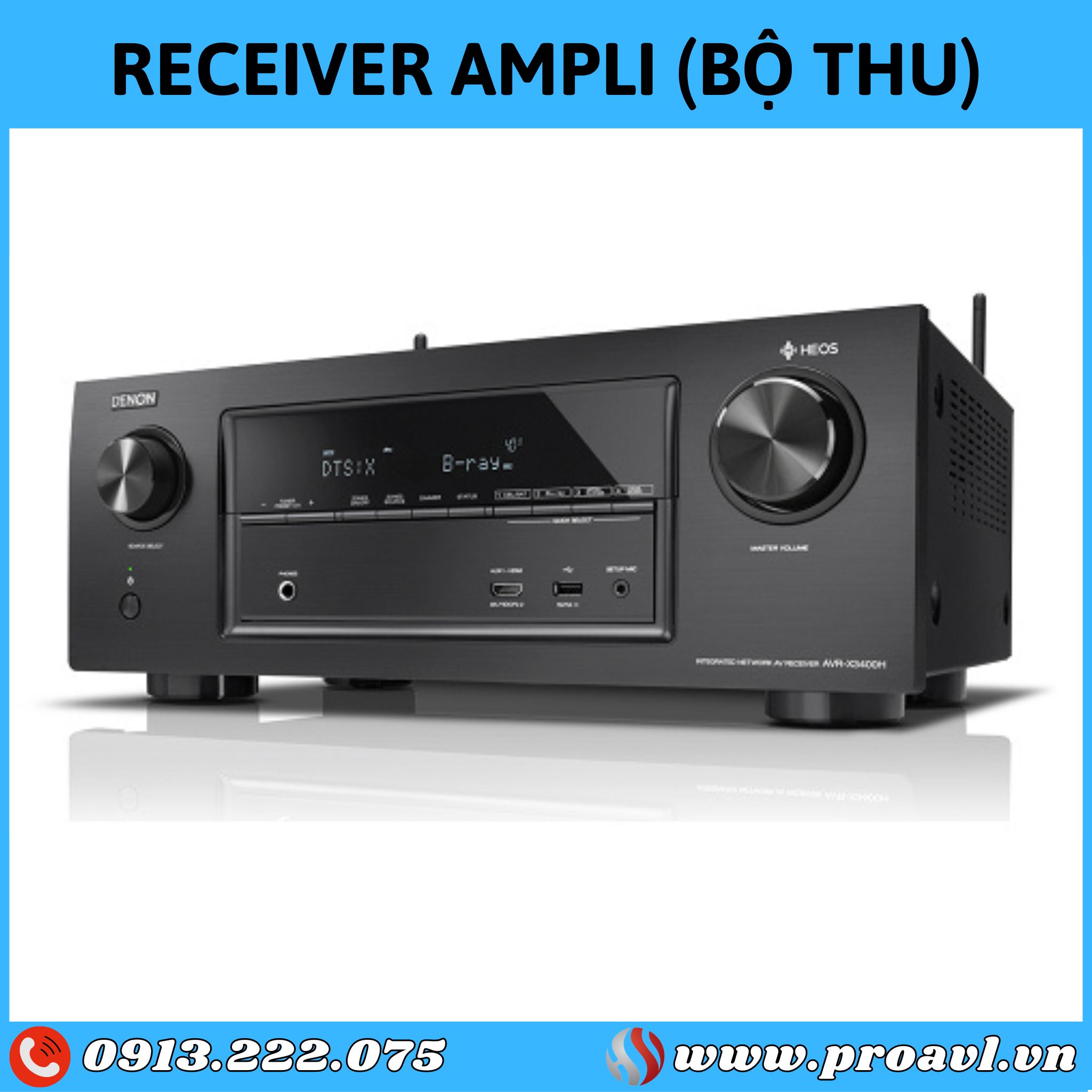
5. Các yếu tố ảnh hưởng đến chất lượng của amply
Amply là thiết bị khuếch đại âm thanh, có vai trò quan trọng trong hệ thống âm thanh. Chất lượng của amply ảnh hưởng trực tiếp đến chất lượng âm thanh đầu ra.
Các yếu tố ảnh hưởng đến chất lượng amply bao gồm:
Công suất: Công suất amply là khả năng khuếch đại âm thanh của amply. Công suất amply càng lớn thì khả năng khuếch đại âm thanh càng mạnh mẽ, âm thanh phát ra càng to và rõ ràng. Tuy nhiên, công suất amply cũng cần phù hợp với công suất của loa để tránh tình trạng hỏng hóc loa.
Kết cấu: Kết cấu amply ảnh hưởng đến khả năng tản nhiệt của amply. Khả năng tản nhiệt tốt giúp amply hoạt động ổn định, tránh tình trạng quá nóng gây hỏng hóc.
Chất liệu: Chất liệu chế tạo ampli ảnh hưởng đến độ bền của amply. Amply được làm từ chất liệu cao cấp, có độ bền cao sẽ sử dụng được lâu dài.
Tính năng: Amply có nhiều tính năng khác nhau, giúp người dùng dễ dàng điều chỉnh âm thanh theo ý muốn.
Thương hiệu: Thương hiệu amply cũng là một yếu tố ảnh hưởng đến chất lượng của amply. Các thương hiệu amply uy tín thường sử dụng các linh kiện cao cấp, có quy trình sản xuất nghiêm ngặt, mang lại chất lượng âm thanh tốt.
Chất lượng của nguồn điện: Nguồn điện sạch, ổn định sẽ giúp amply hoạt động tốt hơn, hạn chế tình trạng nhiễu, méo tiếng.
Vị trí đặt amply: Amply nên được đặt ở nơi thoáng mát, tránh ánh nắng trực tiếp và nguồn nhiệt cao.
Cách sử dụng: Amply nên được sử dụng đúng cách, tránh để amply hoạt động quá tải.
6. Hướng dẫn chọn amplier phù hợp
Amply là thiết bị khuếch đại âm thanh, có vai trò quan trọng trong hệ thống âm thanh. Việc lựa chọn amply phù hợp là rất cần thiết để đảm bảo chất lượng âm thanh tốt nhất. Dưới đây là hướng dẫn chọn amply phù hợp:
- Xác định nhu cầu sử dụng:
Trước khi lựa chọn amply, bạn cần xác định nhu cầu sử dụng của mình. Bạn sẽ sử dụng amply để nghe nhạc, xem phim, biểu diễn hay phục vụ mục đích nào khác? Tùy theo nhu cầu sử dụng, bạn sẽ lựa chọn amply có công suất, tính năng và giá thành phù hợp.
- Xác định công suất amply:
Công suất amply là khả năng khuếch đại âm thanh của amply. Công suất amply càng lớn thì khả năng khuếch đại âm thanh càng mạnh mẽ, âm thanh phát ra càng to và rõ ràng. Tuy nhiên, công suất amply cũng cần phù hợp với công suất của loa để tránh tình trạng hỏng hóc loa.
- Xác định tính năng amply:
Amply có nhiều tính năng khác nhau, giúp người dùng dễ dàng điều chỉnh âm thanh theo ý muốn. Các tính năng thường thấy trên amply bao gồm:
- Điều chỉnh âm lượng
- Điều chỉnh âm bass
- Điều chỉnh âm treble
- Điều chỉnh âm mid
- Điều chỉnh độ nhạy
- Điều chỉnh độ trễ
- Điều chỉnh hiệu ứng
- Xác định thương hiệu amply
Các thương hiệu amply uy tín thường sử dụng các linh kiện cao cấp, có quy trình sản xuất nghiêm ngặt, mang lại chất lượng âm thanh tốt. Một số thương hiệu amply nổi tiếng trên thị trường hiện nay bao gồm:
- Denon
- Yamaha
- Pioneer
- Onkyo
- Sony
- JBL
- Bose
- Xem xét giá cả
Giá amply phụ thuộc vào nhiều yếu tố như thương hiệu, công suất, tính năng, chất liệu... Bạn nên cân nhắc nhu cầu sử dụng và khả năng tài chính của mình để lựa chọn amply có giá cả phù hợp.
- Thử nghiệm amply
Trước khi mua amply, bạn nên đến cửa hàng để thử nghiệm amply. Điều này sẽ giúp bạn đánh giá chất lượng âm thanh của amply và lựa chọn được amply phù hợp với nhu cầu của mình.
- Lưu ý khi sử dụng amply
Amply nên được đặt ở nơi thoáng mát, tránh ánh nắng trực tiếp và nguồn nhiệt cao.
Amply nên được sử dụng đúng cách, tránh để amply hoạt động quá tải.
7. Top 5 hãng sản xuất amply tốt nhất
Amply Marantz: Nổi tiếng với các sản phẩm âm thanh hi-end, Marantz sản xuất ampli với chất âm chất lượng và thiết kế đẹp.
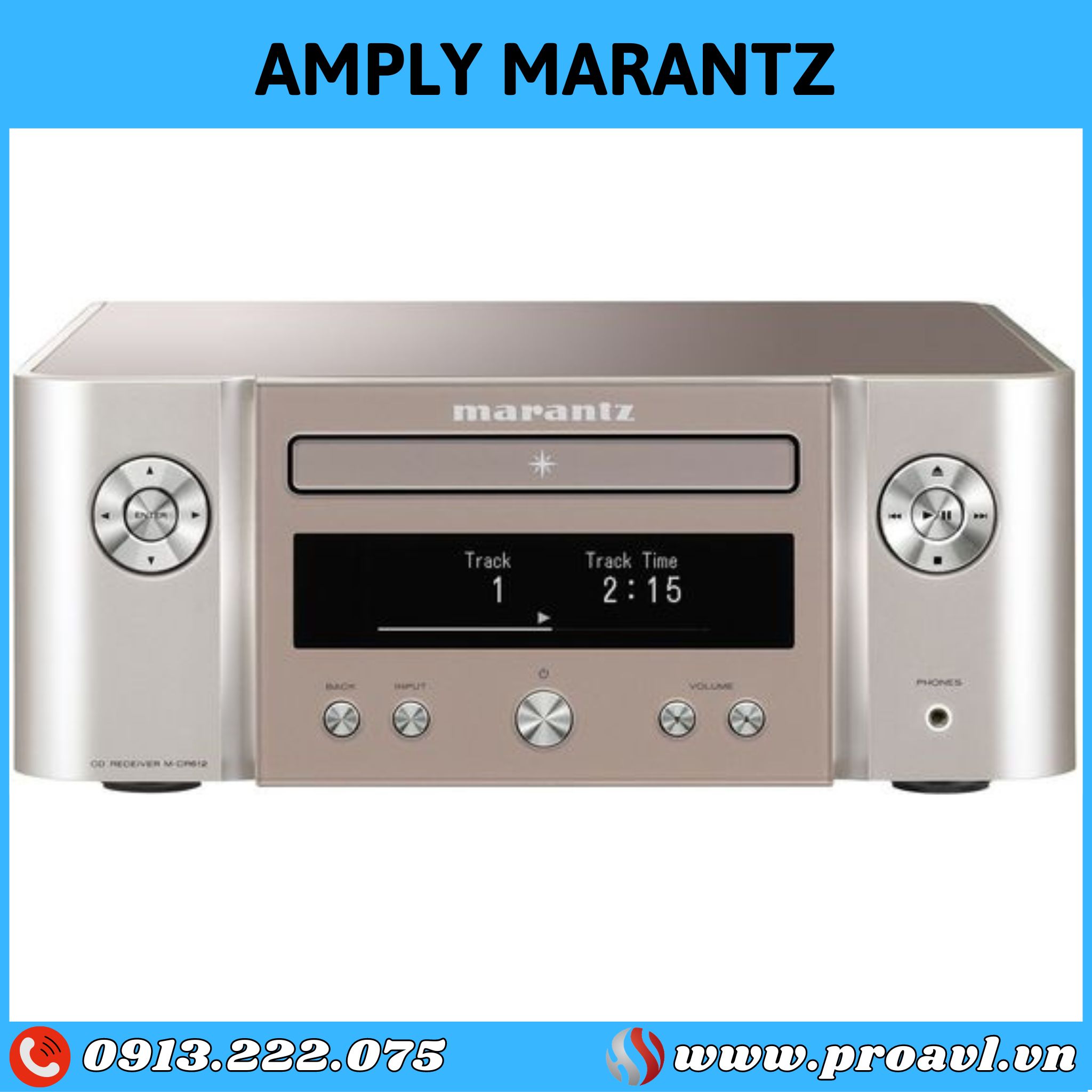
Amply Denon: Là một trong những thương hiệu hàng đầu trong ngành công nghiệp âm thanh, Denon cung cấp nhiều loại ampli cho các dàn âm thanh gia đình và chuyên nghiệp.
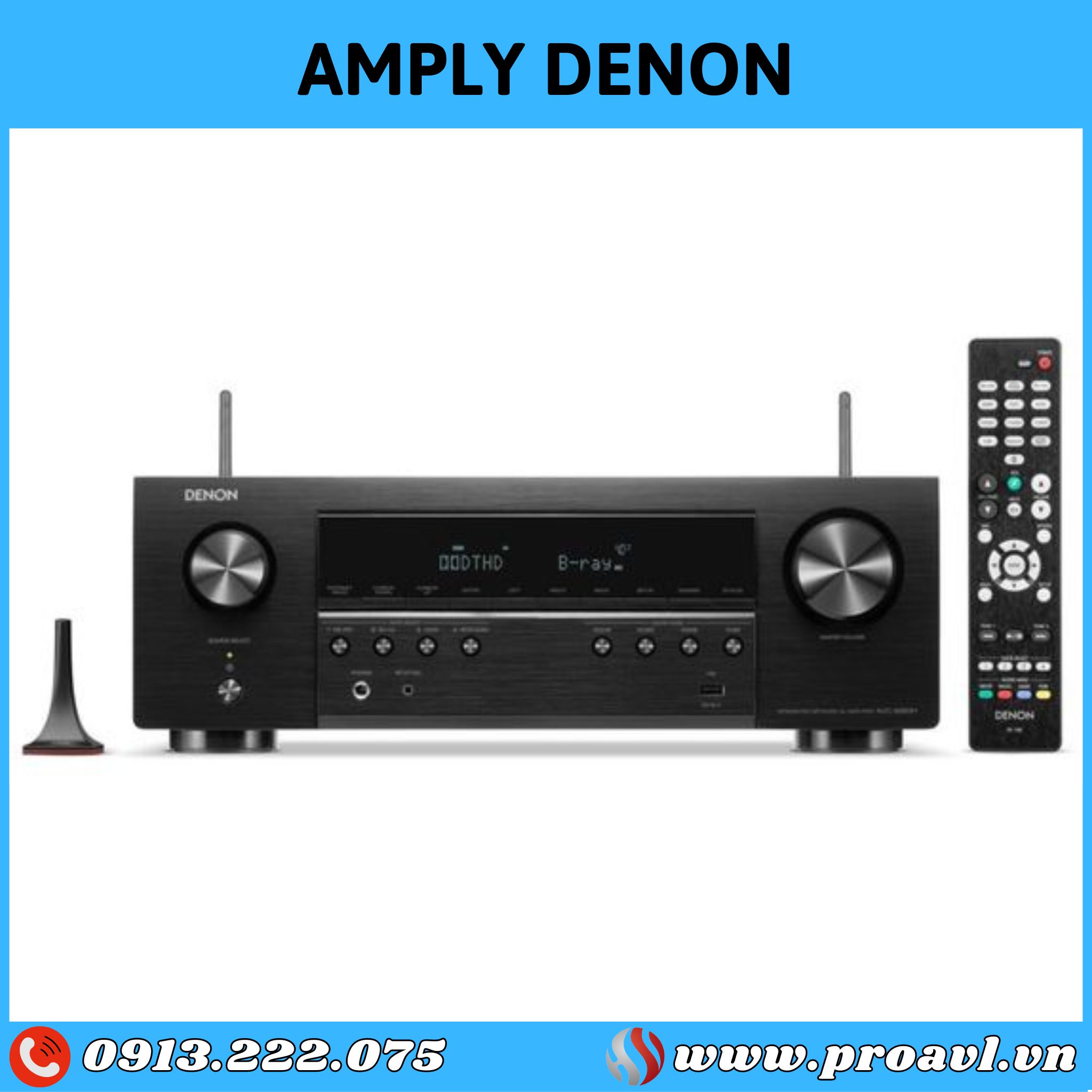
Amply Yamaha: Yamaha là một thương hiệu đa nhiệm, sản xuất không chỉ amply âm thanh mà còn các sản phẩm âm nhạc và giải trí khác. Ampli của Yamaha thường được đánh giá cao về tính năng và hiệu suất.
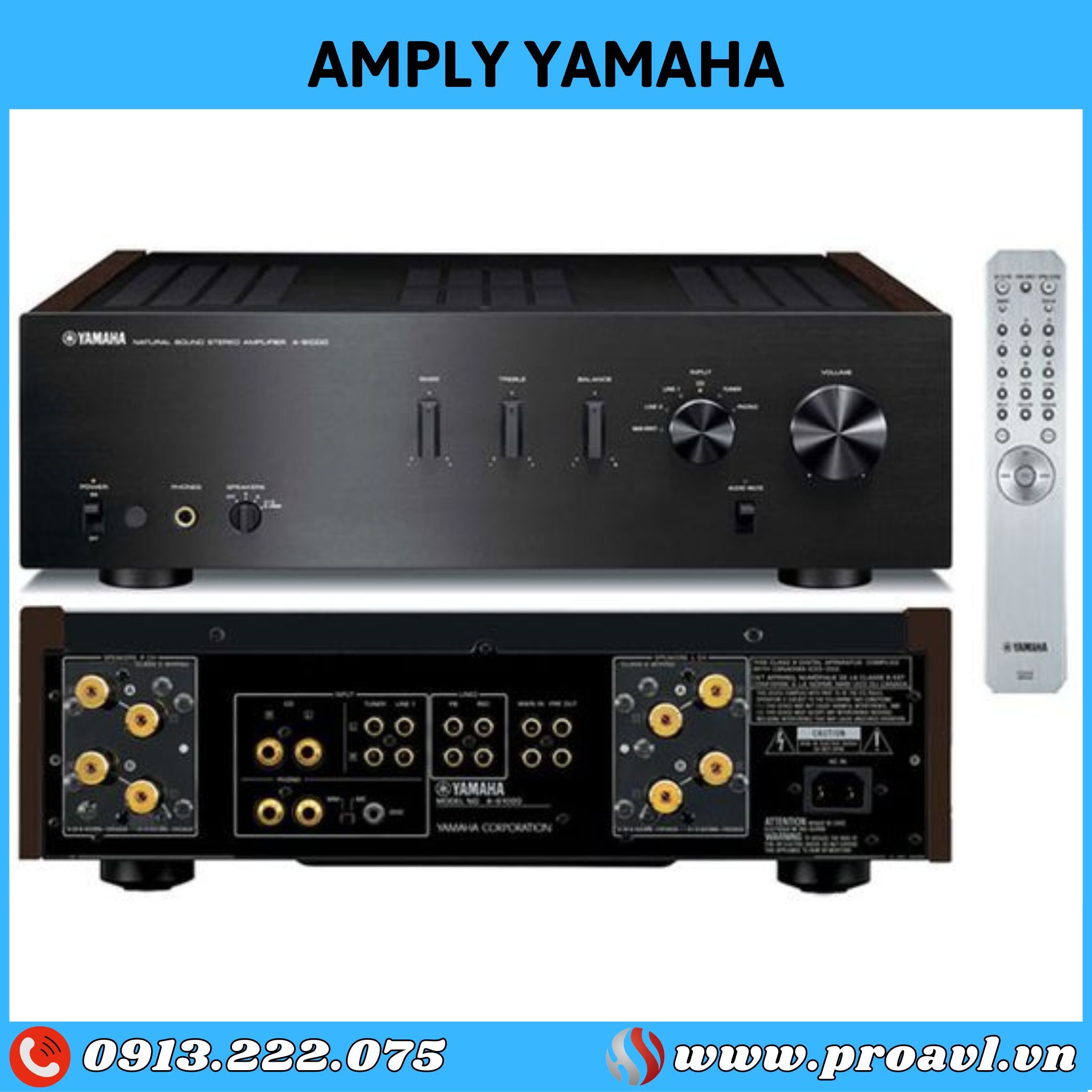
Amply Onkyo: Thương hiệu này nổi tiếng với các sản phẩm âm thanh gia đình và home theater, với ampli được đánh giá cao về chất âm và khả năng kết nối.
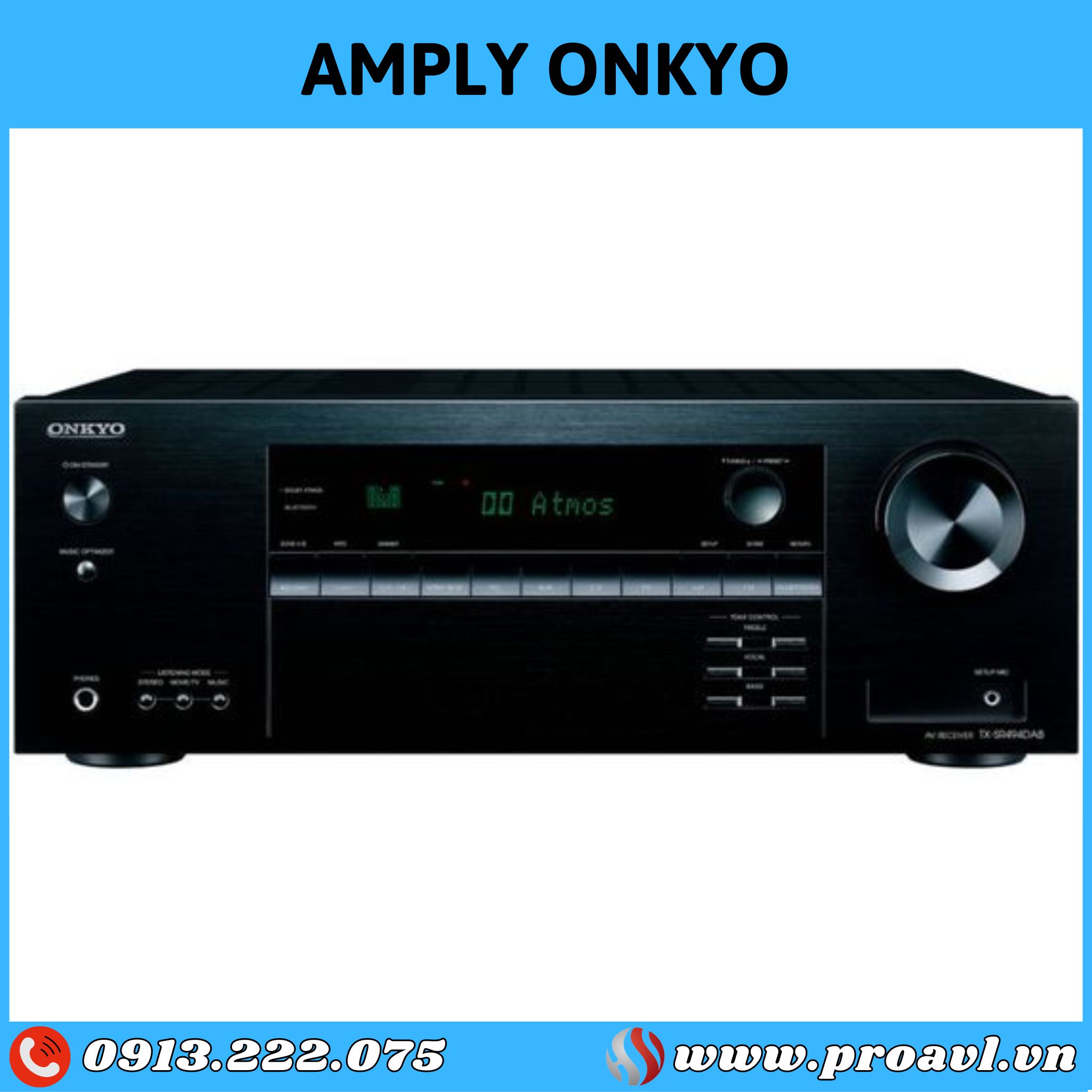
Amply Cambridge Audio: Là một hãng chuyên về các sản phẩm âm thanh hi-fi, ampli của Cambridge Audio thường được đánh giá cao về chất âm chi tiết và hiệu suất.
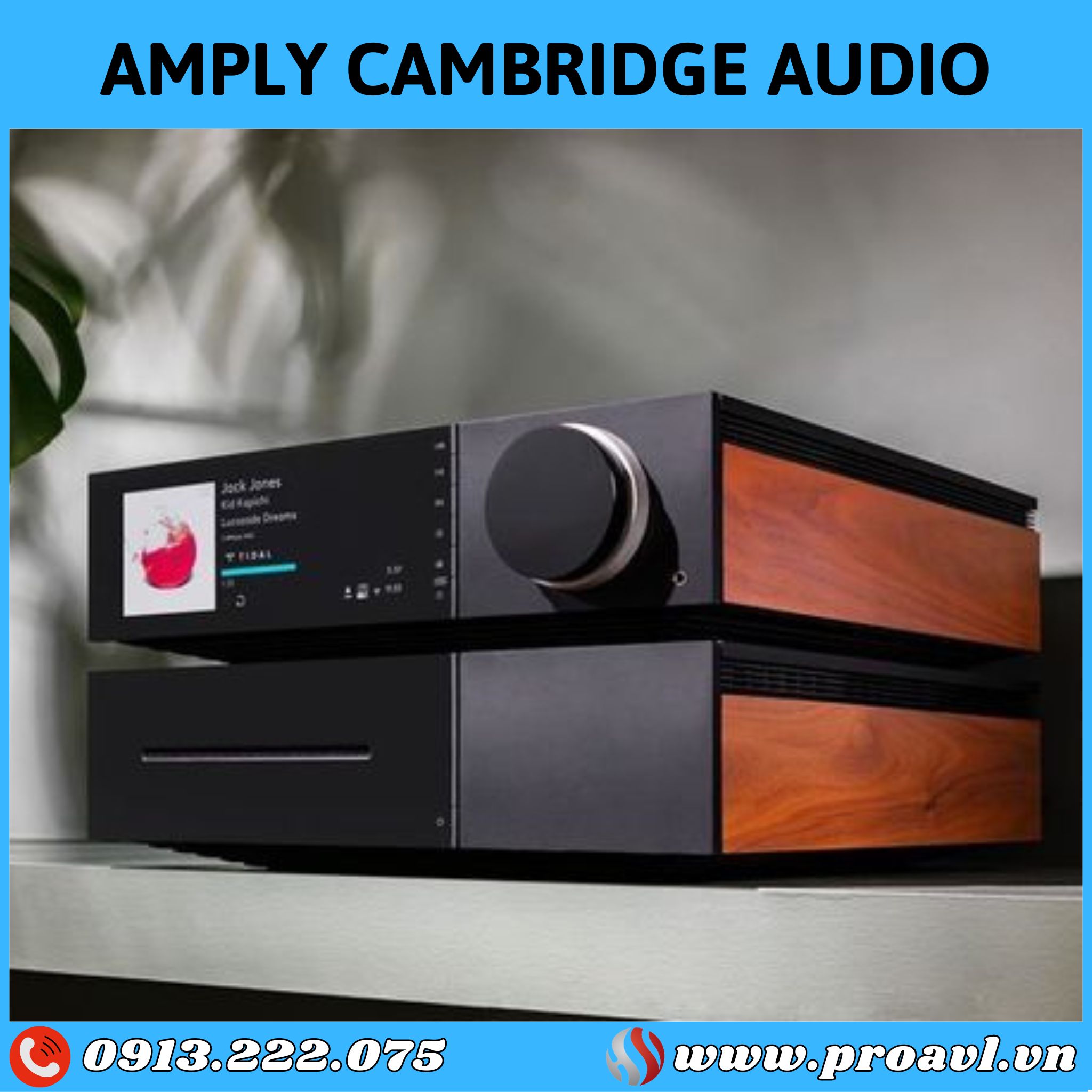
8. Địa chỉ mua amply chính hãng giá tốt
HSV ProAVL chuyên cung cấp amply chính hãng uy tín hàng đầu tại Việt Nam, chúng tôi cung cấp amply chính hãng giá tốt, giao hàng toàn quốc cho khách hàng.
HSV ProAVL cung cấp đa dạng các loại amply chính hãng từ các thương hiệu nổi tiếng trên thế giới như: Yamaha, Denon, Pioneer, Onkyo, Sony, JBL, Bose,...
Với hơn 10 năm hoạt động trong lĩnh vực âm thanh ánh sáng, chúng tôi luôn tự hào là đơn vị dẫn đầu, mang giải pháp chất lượng âm thanh cao cấp đến với bạn.
Quý khách có nhu cầu mua amply gia đình, amply chuyên nghiệp xin vui lòng liên hệ theo thông tin dưới đây:
Hà Nội: 0972.787.123
TP.HCM: 0913.222.075
Email: hsvavl@gmail.com
CN Hà Nội: Số 229, Đ. Vân Trì, phường Vân Nội, quận Đông Anh, Hà Nội
Trụ sở TP. HCM: 184/20 Lê Đình Cẩn, Phường Tân Tạo, Quận Bình Tân, TP. HCM
XEM THÊM SẢN PHẨM DỊCH VỤ CỦA HSV ProAVL



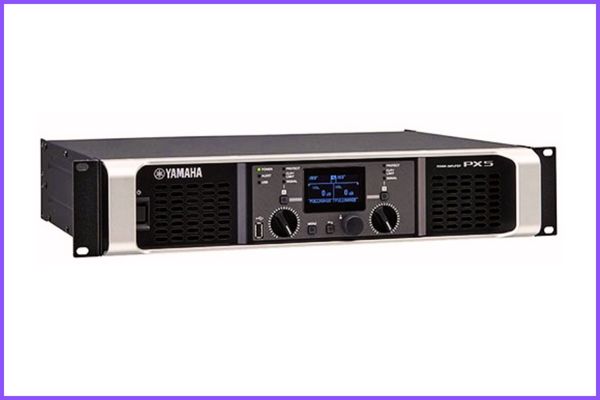
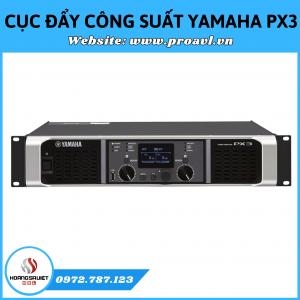



.jpg)












